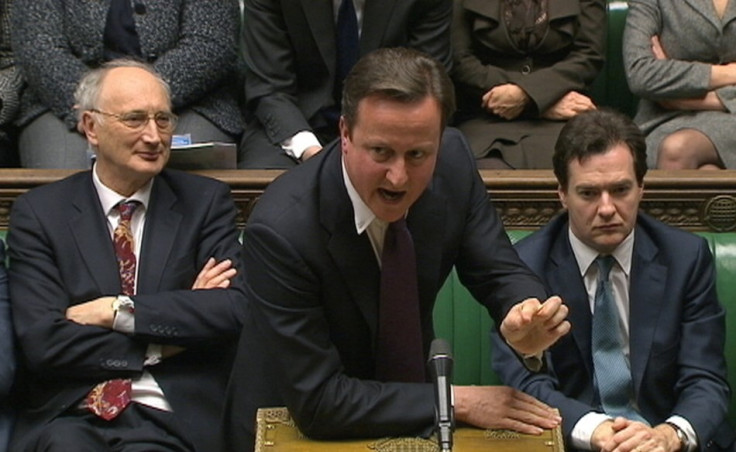David Cameron Mocked by Backbenchers over Europe

David Cameron's troubles continued, as his own backbenchers mocked the prime minister for making a U-turn on his controversial veto in December.
In what will be a particularly souring note for Cameron, who agreed that the new fiscal pact of 25 countries could carry on using the EU institutions, his Lib Dem coalition colleagues praised him for the way he handled the summit.
Labour leader Ed Miliband said he had gone back on a promise in December that he would not allow EU institutions like the European Commission or European Court of Justice to be used to support the new agreement.
"With this Prime Minister, a veto is not for life, it's just for Christmas," Miliband told MPs.
But Cameron said some use of the institutions by the group of 25 was already permitted by existing EU treaties.
Cameron blocked a full treaty of all 27 EU states on eurozone fiscal discipline by wielding the UK's veto at the December summit of the European Council.
The Czech Republic has joined Britain in saying it would not sign up to the "fiscal compact", expected to be finalised in March.
Speaking in the Commons, Cameron said: "The new agreement sets out roles for the European Commission and the European Court of Justice.
"While some of those roles are already permitted through existing treaties, there are legal questions about what is planned.
"It is in Britain's interest that the eurozone sorts out its problems and it is also in our interest that the new agreement outside the European Union is restricted to issues of fiscal union and does not encroach on the single market," he told MPs.
"This is a treaty outside the EU. We are not signing it, we are not ratifying it, we are not part of it and it places no obligations on the United Kingdom," the prime minister added.
"It doesn't have the force of EU law for us, nor does it have the force of EU law for the EU institutions, nor does it have the force of EU law for the countries who sign it.
"There will be no inner group of EU countries distorting the single market from inside the EU treaty. That is the fundamental protection we secured with our veto in December and that protection remains."
© Copyright IBTimes 2025. All rights reserved.





















